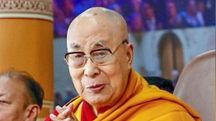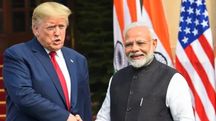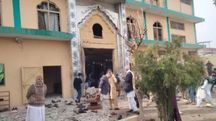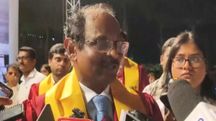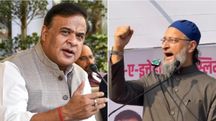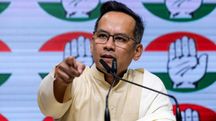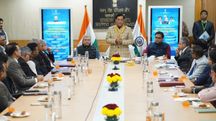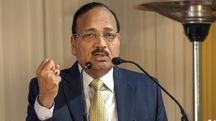Netaji files: Why did India never access Taiwan’s 1956 probe on Subhas Bose's death?
Believe it or not, a declassified Taiwanese government file has unraveled the previously unpublished historical fact that the Republic of China (ROC) government conducted an inquiry over the debatable death of the Indian statesman way back in 1956. Intriguingly, none of the official probe reports by the various committees/commissions set up by the Indian government to investigate Bose’s “questionable” death since the country’s independence on August 15, 1947, has ever mentioned a word about this never-quoted-before inquiry at the ground zero of the Taihoku air crash. Here is the first part of an exclusive series.
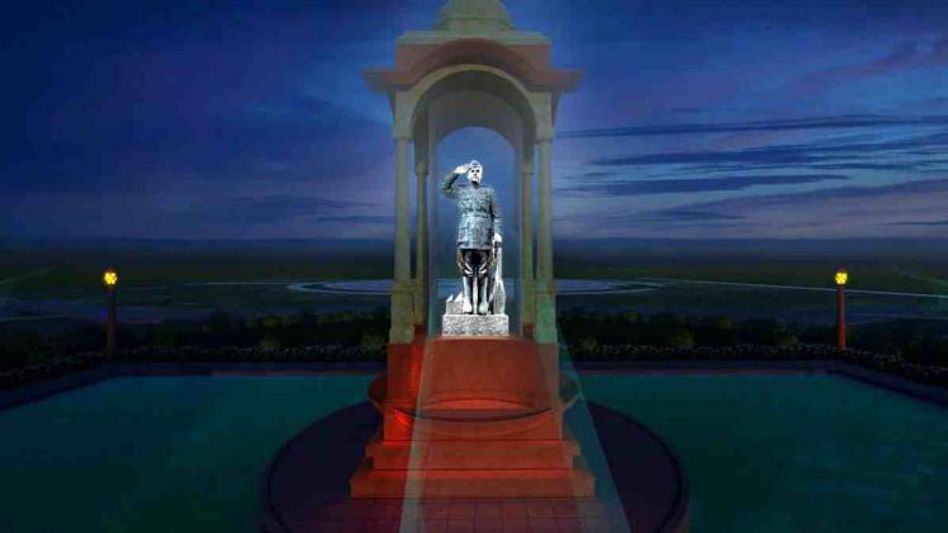 Photo Credit: Google
Photo Credit: GoogleOn August 2, 2022, a hundred thousand people worldwide were tracking Taiwan-bound U.S. Air Force flight SPAR19 that eventually landed at the capital Taipei’s Songshan airport, with U.S. House Speaker Nancy Pelosi on board and created quite a sensation across the globe. But almost eight decades ago, precisely 77 years back and in another August, the same airstrip that was then known as Taihoku Hikōjō or Taihokuairport under the Japanese military rule over the then Formosa marked an inconspicuous arrival of another foreign leader by a discreet Mitsubishi Ki-21 heavy bomber that paved the way for a legendary unsolved geopolitical mystery in India’s history – the untimely and rather unbelievable death of Indian icon Netaji Subhas Chandra Bose.
Ground zero of “reported” air crash
If the most widely and commonly accepted official version of Bose’s death in the Taihoku air crash on August 18, 1945, is to be believed, Taiwan stays as the ground zero of the iconic freedom fighter’s enigmatic demise. But for some seemingly unknown and unfathomable reasons, the surface of the land where Bose reportedly breathed his last was hardly scratched, nor was there any attempt to till its fertile soil with a gold mine of information regarding the freedom movement legend in these 75 years since India became independent. Interestingly, the seemingly unseen and unexplored declassified files of the geopolitically strategic island’s government archives throw up some startling facts raising more questions than the officially stated answers on Bose.
Probed in Taiwan, unseen by India
Believe it or not, a declassified Taiwanese government file accessed by the author with the active help of passionate Netaji death mystery researcher Saurav Dangar unraveled the previously unpublished historical fact that the Republic of China (ROC) government with Generalissimo Chiang Kai-shek at the helm, both as the president of the island nation and director general of the ruling Kuomintang (KMT) party, conducted an inquiry over the debatable death of the Indian statesman way back in 1956. Intriguingly, none of the official probe reports by the various committees/commissions set up by the Indian government in different decades to investigate Bose’s “questionable” death since the country’s independence on August 15, 1947, has ever mentioned a word about this never-quoted-before inquiry at the ground zero of the Taihoku air crash. Dangar, an engineering student from Bankura in West Bengal, informed, “I didn’t expect to find these important sets of declassified documents related to Netaji so easily and without burning much sweat in a foreign country where I arrived just a few months ago. In fact, even though I can’t speak Chinese, it was not at all difficult for me to convey my search requests to the archives in Taiwan and the ever-helpful staff there guided me in the right direction. With their unconditional support, I was able to locate the files at the right places and accessing those wasn’t an issue at all. When I saw these files, especially the one with the interesting title, I realized that it could prove to be a crucial document on Netaji in Taiwan.” It may still be contentious and confounding to assume whether the three exalted and empowered probe committees/commissions missed out that crucial information about the investigation at the epicentre of the enigma inadvertently or on purpose, but a closer look at the rather inconspicuous Taiwan Police Department’s probe report sprang up more and bigger surprises.
When Taiwan government couldn’t certify Bose’s death
The title under which the Taiwan Police Department probe report was catalogued in one of its archives is quite startling. Extraordinarily, the title metadata of the online file, archived under a traditional Chinese, which is predominantly used in the island nation, read: “未能証明第二灾世界大戰時印度國民領袖鮑斯在臺死亡 (in Chinese pinyin, Wèi néng zhèngmíng dì èrzāi shìjiè dàzhàn shí yìndù guómín lǐngxiù bào sī zài tái sǐwáng) which literally means “Failed to prove that Indian national leader Bose died in Taiwan during World War II” or “Cannot be certified that during the second world war the leader of India Bose died in Taiwan.” Curiously, the probe by the Taiwan Police Department, as per the once confidential document, was conducted from June 19, 1956, to August 30, 1956, and after its declassification, it was archived at Taiwan Historica located in Nantou City before Dangar, a Master’s degree student at Taipei’s prestigious National Taiwan University (NTU) went all the way to collect the files that both mysteriously and inexplicably eluded three prominent committees/commissions set up by the Indian government over the last seven decades.
The “official” death report in Taihoku crash
Various personal accounts, news reports, official government versions, probe committees/commissions’ findings and several family versions almost unilaterally and quite uniformly believe that on that fateful day of August 18, 1945, Bose died in Taipei (then named Taihoku by the Japanese) a few hours after the Japanese military aircraft, code-named ‘Sally’ by the Allied forces, crashed moments after taking off from the Japanese military airbase, then known as Matsuyama Airfield, following a brief refueling stopover. But the almost clandestinely reported death and the carefully guarded cremation of one of India’s most revered national heroes on foreign soil triggered a debate that has been raging even today. For decades, there have been many conspiracy theories over the legendary Indian revolutionary’s death and its authenticity, while many loopholes in the official version do exist. In fact, numerous unanswered questions, including the non-access to the above-mentioned Taiwan Police Department files, remain even today.
Omissions of key files by commissions
In order to cater to the public demand to probe Bose’s death or check its veracity, the Government of India set up three different committees/commissions in various decades since India became independent in 1947. In 1956, the Shahnawaz Committee was constituted by the Jawaharlal Nehru government, his daughter and then Prime Minister Indira Gandhi set up the Khosla commission in 1970, while former opposition stalwart and then Indian Prime Minister Atal Behari Vajpayee formed the Mukherjee Commission in 1999.
Astonishingly, the Mukherjee Commission, headed by Retired Supreme Court Judge Justice Manoj Kumar Mukherjee, which was set up more than a decade after the 1956 Taiwan Police Department probe report was declassified after the 30-year-long embargo, in its report mentioned: “From the records made available to this Commission it is seen that after August 23, 1945, when the news of Netaji’s death was broadcast, and prior to the appointment of the Shah Nawaz Committee by the Government of India on April 5, 1956, a number of inquiries were held at the behest of the British and the American Intelligence authorities to ascertain the truth. Reports of those inquiries indicate that they based their findings relying solely upon the oral testimony of some witnesses without caring to search for the relevant records of Taihoku Airport, the Army Hospital, Taipei Municipal Bureau of Health Hygiene (‘Bureau’ for short) and Taipei City Crematorium to test the veracity of their assertion and, in case no such record was found, to incorporate that fact in their respective reports….” Noticeably, even though the Commission underlined the British and the American probes, there was not a single word about the interesting investigation initiated by the very government under whose jurisdiction the crash site falls.
Single communique from Taiwan on Bose’s death
Peculiarly, the only document from the Taiwan government furnished by the Mukherjee Commission was the verification of an email dated August 5, 2003, and received by eminent Netaji researcher and journalist-turned-author Anuj Dhar from Lin Ling-San, the then minister in the Ministry of Transportation and Communications (MOTC) that categorically stated: “Unfortunately, after reviewing all hand over records during the period from 8/14/1945 to 10/25/1945, there was no evidence shows that one plane had ever crashed at old Matsuyama airport (now is Taipei Domestic Airport) carrying Mr. Subhas Chandra Bose.” According to Taiwan’s law of the land, any classified official document/file can be declassified after 30 years, and it’s been more than a couple of decades since the Netaji files in Taiwan could have been officially declassified in the 1980s.
Elusive probe report
“I often wonder why those committees/commissions from India that visited Taipei did not get acknowledgement regarding the existence of these files at the Taiwan Historical Archive files in these 6-7 decades from an apparently friendly Taiwan government. If I, as an international student with an ordinary Indian passport, can retrieve Netaji’s death mystery document from the Taiwan Historical Archives, then why was it not done way back. I presume these documents were already declassified for several years and kept in the Taiwan Historical Archives. It’s both sad and astonishing that some of these new documents were simply lying in the Taiwan Historical Archives waiting to be discovered,” Dangar raised a pertinent question.
Notably, India is one of the few countries in the world with an undesignated but de facto diplomatic mission in Taipei – the India-Taipei Association (ITA) – since 1995. On the other hand, the Taiwan government, unrecognized by the United Nations due to the organization’s commitment towards a “one-China Policy,” has got its diplomatic mission in Delhi and Chennai under the name of the Taipei Economic and Cultural Center (TECC) for many decades. But yet, these crucial files weren’t either accessed or any efforts or requests made by the Indian government, ruled by different parties and coalitions over the past few decades. So there may be more to the Netaji death mystery than meets the eye. Watch this space for more.
(The author is an independent journalist and MOE HuayuChinese Language Enrichment Scholar in Taiwan)
Copyright©2026 Living Media India Limited. For reprint rights: Syndications Today
